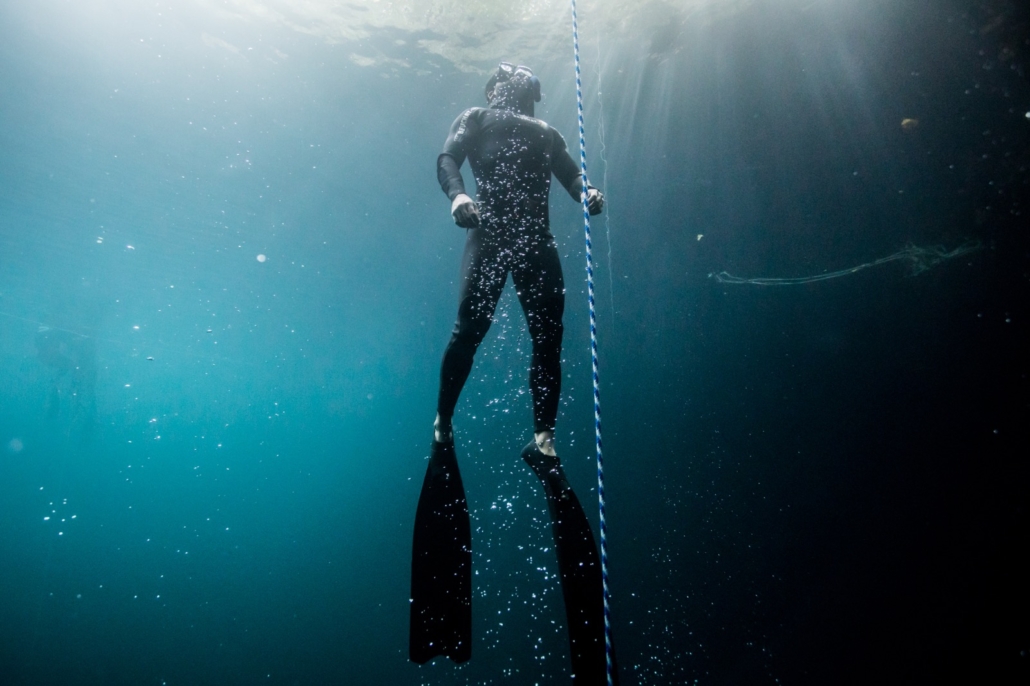
How Our Clinical Director and Our Medical Team Turn Personal Passion into Mitigating Risk
*Note: we love our medical staff. They work closely as a team to keep guests safe. We know you’ll love them, too. This month, we’re taking a closer look at one of our health professionals, so guests can see where the passion for safety comes from. The qualities found in Dr. Ramirez are found in all of our team members. “We have a unique group of individuals that have become a seamless team of medical heroes,” says Tom Feegel, Beond’s co-founder. “Look for more profiles of our doctors and nurses in the coming months.”
When he was 6 or 7, growing up in Cancun, and family members were sick, Eduardo Ramirez would play doctor. He’d take their temperature, dab their brow with a washcloth and comfort them by their bedside.
Becoming a doctor in real life seemed like too big a task. Then, the mushrooms had a word with him. As a young man, Eduardo ate some psilocybin, and a voice in his head said: “Eduardo, in life you cannot be lazy, if you want to achieve real things, you need to work hard, and don’t be afraid to go big.”
Eduardo, now 36, listened to the mushrooms and became Dr. Ramirez, one of our clinical directors. And, today, he sometimes goes big. He’s worked on oil rigs, surfed big waves, and earned a karate black belt.
All the while, he’s learned to balance going big with safety. Take scuba diving. Dr. Ramirez checks his gear’s pressure gauges and inspects the o-rings and does safety stops to avoid the bends (a life-threatening sickness that can come from rising to the surface too fast). It’s only by adhering to a rigorous safety protocol that a diver can feel safe to linger in the depths, so he can marvel at the rippling coral, the bright clown fish, the scary sharks.
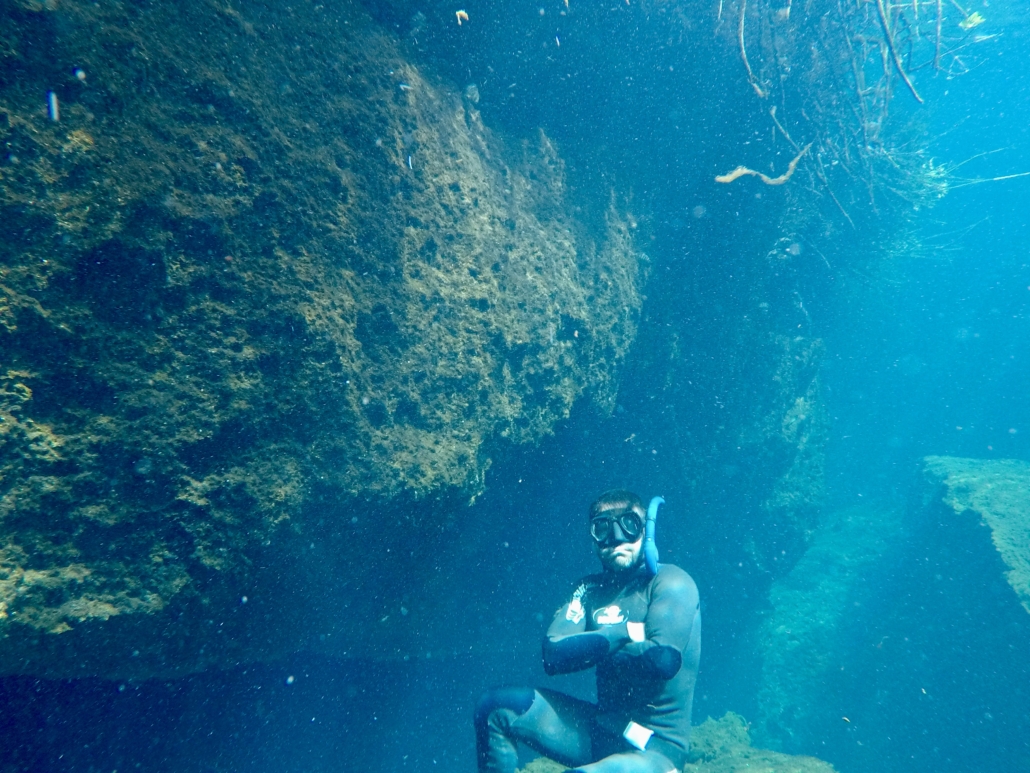
Dr. Ramirez, underwater.
Psychedelic Scuba Diving
Dr. Ramirez learned about the indigenous use of psychedelics. He spent a year as a doctor with Mexico’s Huichol tribe, and was welcomed into their traditional peyote circles. Bridging cultures with plant medicine and deeply caring for the community is part of our lives at Beond. Some of us help out at local mushroom ceremonies, the kinds of which have been going on for hundreds of years.
As an emergency medicine physician in Cancun, a few years ago, Dr. Ramirez stumbled on something that was at least as edgy as scuba diving. He suddenly found himself at one of Cancun’s iboga retreats—not Beond—where there was no medical care. No heart monitors, no physicians, no supplementary treatments or care. Dr. Ramirez knew that iboga calls for humility and care in a way that mescaline and mushrooms don’t.
Iboga is an important part of the Babongo culture in Gabon. But ibogaine affects the cardiovascular system. In rare instances, ibogaine makes the heart beat in a rhythm that is different from its normal, life-giving lub-dub, lub-dub. The dub stops dubbing, and the heart stops pumping blood through the body. In Gabon, “the risk of death is well known and part of the initiation-myth.” When ibogaine is done without screening and medical care—including in Gabonese rituals—some estimates are that one in 200 people die.
The ibogaine clinics without medical professionals are like scuba diving without any extra air in the tank. In fact, Dr. Ramirez was shocked to learn that many retreats and ibogaine circles are still run by people with no medical qualifications.
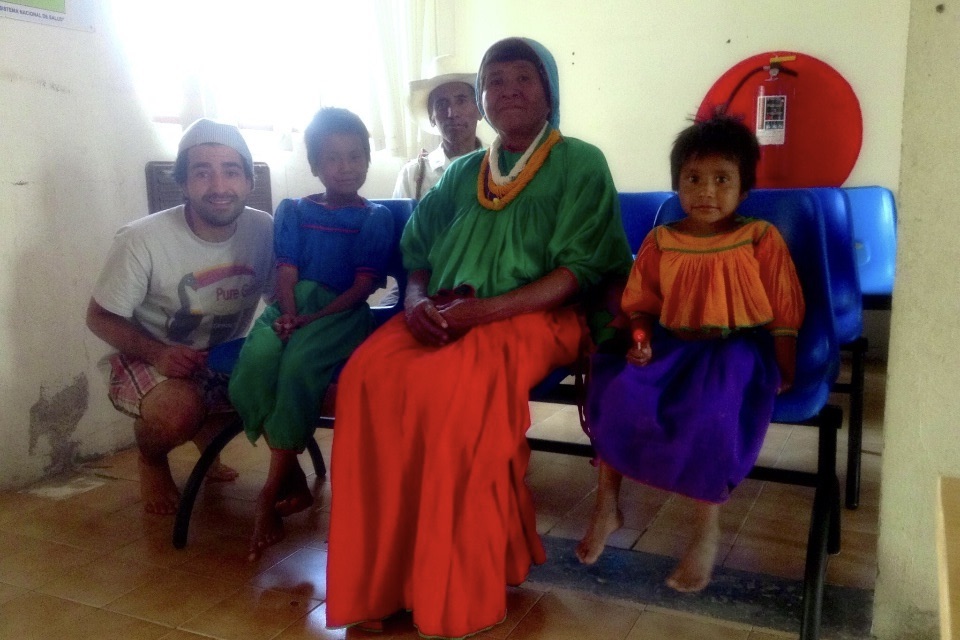
Dr. Ramirez, left, during his year as a doctor for a Huichol tribe, where he learned to respect the indigenous uses of psychedelics.
How Beond Mitigates Risk
Beond strives to be the opposite of those ibogaine clinics. At Beond, we’re like a group of scuba instructors that is always working on getting safer, so their guests can enjoy the dive. We are constantly studying more, measuring more, triple checking more and learning more about what it means to create a safer environment and treatment experience for clients.
Dr. Ramirez is just one of our amazing staff that makes our facility one of the best and safest in the world. Our medical team of five doctors and nearly two dozen nurses strive to be a fine-tuned organization of deeply dedicated and trained professionals who work together as one for increased safety.
Our medical team has helped develop sophisticated multi-stage risk mitigation strategies and safety protocols, aiming to craft the most rigorous in the entire ibogaine world. “Our deeply safe space causes someone to say ‘Okay, I can relax, and allow the ibogaine to have its effects, to let these people take care of me while I go very deep into consciousness,’” says Tom Feegel, Beond’s co-founder.
We have trained with top universities, published features in well-recognized journals, and have affiliations with many psychedelic industry professionals. Our research advisor did a study funded by MAPS. Our data scientist graduated from the Yale School of Medicine. Our psychology advisor published a peer-reviewed paper in Frontiers in Psychiatry. Our nurses are trained in advanced cardiac life support and some have years of ibogaine nursing experience.
Our Safety Checks
Prevention is the best medicine. So, before anyone comes, we take care to screen out anyone with heart problems. A doctor, such as our wise Dr. Edgar Montalvo Diaz, may ask for recent medical tests like echocardiograms to evaluate your heart health. Dr. Montalvo judiciously screens out guests with health risks.
Clinical director Vianey Perez, RN, is practiced at guiding clients smoothly through the medical intake process to make sure our clients qualify for treatment. “We make sure the body is physically stable enough for this treatment, and that there’s psychological and spiritual safety,” says Perez.
Guests receive:
— Multiple urine drug tests, checking other drugs in the system, since some can interfere with ibogaine.
—At least two blood tests checking electrolytes. Stable electrolytes can reduce risks to the heart.
— A 45-element metabolic panel checking the body’s enzymes—especially liver in cases of alcohol dependence.
“Not a lot of clinics can go that deep into a screening process,” says Dr. Ramirez.
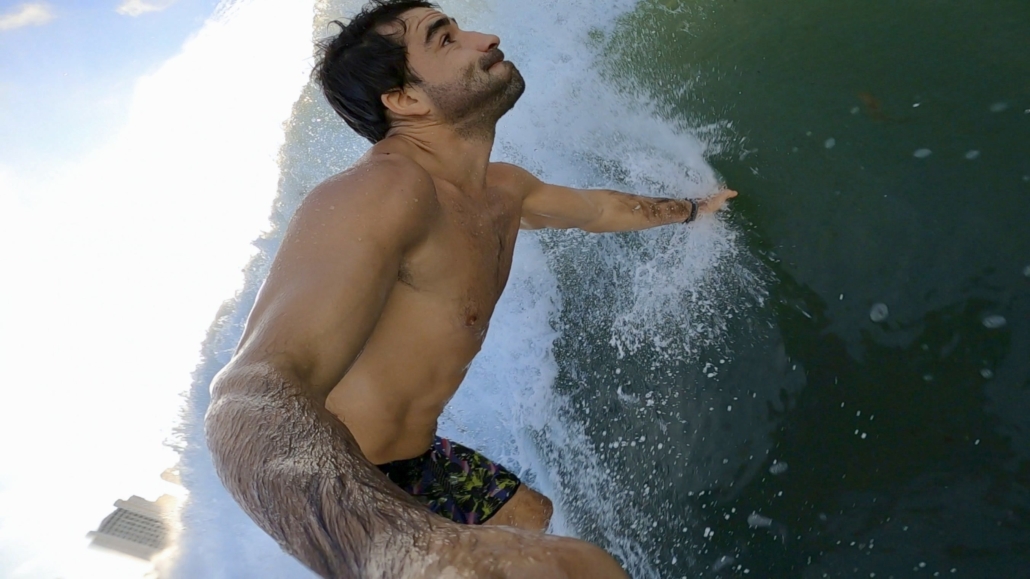
Dr. Ramirez, surfing.
Matters of the Heart
We treat the whole person, but we pay special attention to the heart.
We are continually training the medical team on the intricacies of cardiac-electrophysiology (the electrical activity in the heart).
We give everyone at least five echocardiograms, so the doctors know, share, compare and confirm that the heart is healthy, and stays healthy. We are continually using digital technologies to gather, analyze, monitor and share details before, during and after every treatment—while remaining HIPAA compliant.
“By the time the client gets into the treatment room, they have a personal relationship with the individual doctors and nurses, and know that they’re all people who know what they’re doing, and feel that the team truly cares about them,” says Tom Feegel, co-founder of Beond.
Our Treatments
The ibogaine journey room is a cross between an ICU at a major metropolitan hospital and a spa-like healing sanctuary: it has soft lighting and a soothing mural of nature, but is medically rigorous.
There’s not one second when a person on ibogaine is not under medical supervision. We have board-certified ICU physicians and emergency medicine doctors onsite during every treatment and on call 24/7. Someone from our medical team, such as Martha Patricia Tovar Castrejón, our head of nursing, will monitor heart rhythms every moment of an ibogaine journey. Every client receives treatment wearing a blood pressure cuff on their arm, a pulse oximeter on their finger, and an IV line in their vein. Electrodes on their chest send signals to a electrocardiogram heart monitor, which tracks the hearts’s lub-dub, lub-dub.
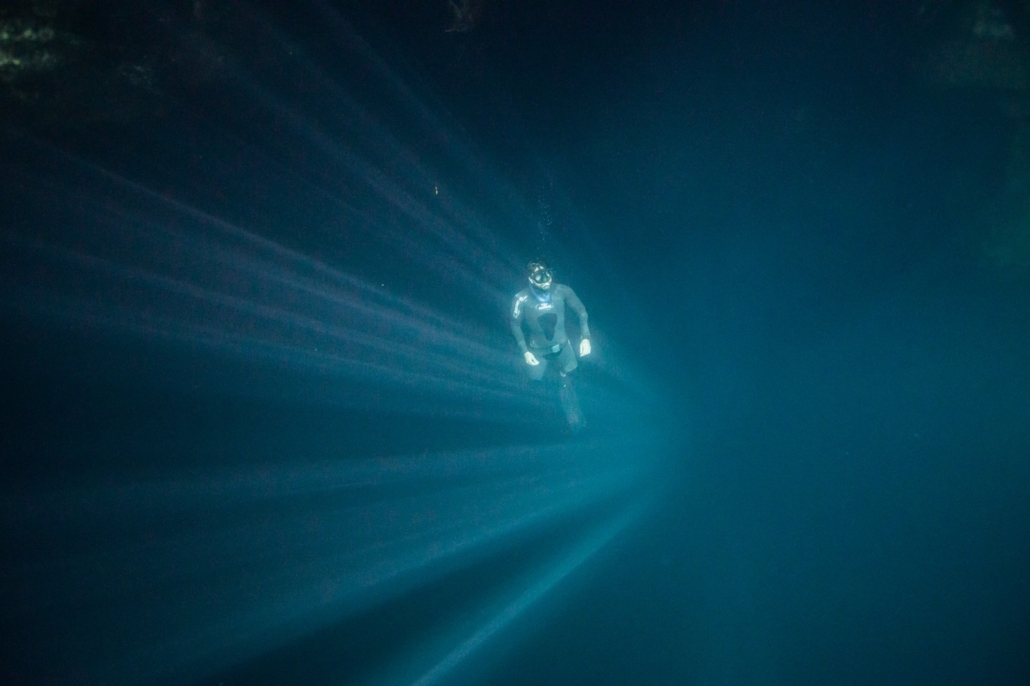
Using the electrocardiogram, staff vigilantly watch the heart’s QT interval—the dub part of the heart’s lub-dub. In all ibogaine treatments, the QT interval becomes elongated. In rare cases, an extended QT interval can lead to an irregular rhythm called Torsade de pointes, which can be fatal. If, during a long session, staff sees a rapid increase in the length of the QT interval, one that could lead to an irregular rhythm, nurses radio to the doctors who jump into action:
— The medical staff can take the preventative measure of pushing a bolus of magnesium through an IV pump to stabilize the cardiac membrane and keep the heart safe.
— We’ll monitor the potassium levels, to make sure they are in the upper normal range.
— We might use a medication called isoproterenol to increase the heart rate to shorten the QT interval.
Our Emergency Plan
At Beond, we rehearse and prepare for the dreaded moment when something might go wrong during an ibogaine session. We inventory the oxygen tanks, intubation equipment and crash cart. We have an emergency button that lets the facility know there is a “code blue.” From there, we have a detailed emergency plan, complete with radios, alarms, codes, and drills, following the international standards of Advanced Cardiac Life Support.
Our emergency plan is in the hands of nurse Tovar. She worked in an ICU before coming to Beond, taking care of some of the life threatening cases like intubating covid patients and debrillating drug overdoses.
In an emergency, we have six pre-assigned roles. Early in the morning we see who is on shift that day, and we decide who would be taking care of each action, says nurse Tovar. There is:
— Team Leader
— Airway Control, including intubation
— Chest compressions
— AED management
— Medication administration
— Recorder — keeping track of medications and compressions
“No matter who is on shift you are covered. We are all ACLS trained and know what to do in case of an emergency,” says nurse Tovar. “I can compare our treatment room to any ICU.”
We Believe in Our Medical Team
Our team is so confident in the safety of our ibogaine treatment that many have done ibogaine themselves. “It shows how much trust they have in us and in the medicine,” says Dr. Ramirez. “My ibogaine journey was the most profound psychedelic experience of my life. It showed me that we are nothing, and it’s just about love and compassion.”
Over and over, our staff members call ibogaine one of the most profound experiences of their lives. Over and over, they follow our safety protocols and always stay safe.
“There are different things that we cannot control,” says Dr. Ramirez. “But what we can control is our passion and our commitment. There’s no better thing for me than a client hugging me and telling me, ‘Thank you.”
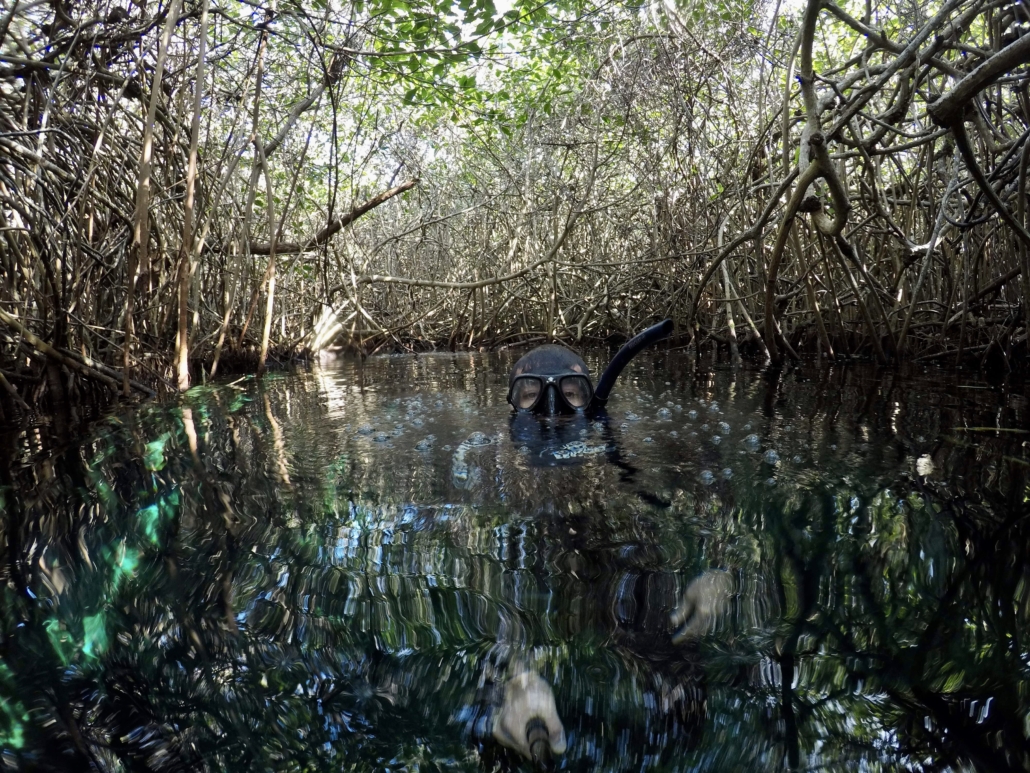
Dr. Ramirez snorkeling.
Going Deep
So we’ve seen the depth of psychedelics. And we come back to the scuba metaphor. Here in Cancun, you can snorkel, staying safe on the surface, and you’ll see beautiful fish. But when you go scuba diving, you can go deeper, and see more.
Feeling safe, our guests can go beyond just skimming the surface of their painful past memories. They can go deep down, to their embodied traumas, their bright ancestral wisdom, their primal attachment wounds.
To embrace, transform and heal.